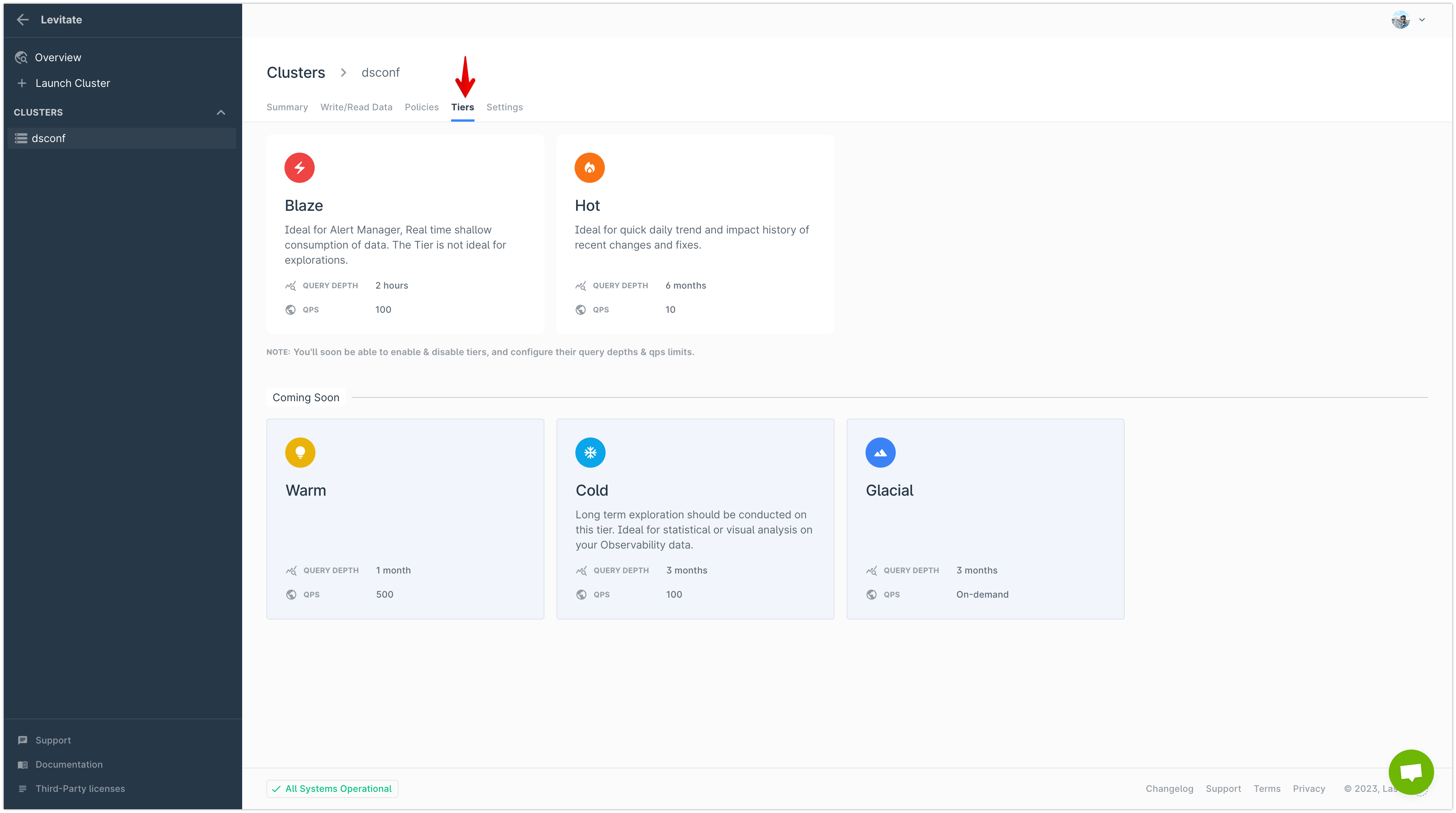Data Tiering
Last9 supports automatic data tiering of metrics based on retention policies and query range limits which allows long term retention of time series data without any downsampling or rollups.
Last9 supports automatic data tiering of the metrics based on retention policies. Leveraging this underlying storage capability, Last9 can store data for long-term durations without downsampling or rollups. It enables traffic shaping of time series data by creating access policies tailored for specific use cases. It is a fundamental differentiator, making Last9 a time series data warehouse built for long-term retention and superior performance.
Each Data Tier has a retention period, which dictates how long it will retain the data, and a query range, which dictates how far in the past one can query.
Additionally, its tier has a query depth, which decides how much one query is in a single query.
Blaze Tier
Ideal for Alert Manager, real-time, shallow consumption of data. Retains data for two hours. It has delta caching enabled for faster queries.
Hot Tier
Ideal for quick daily trends and impact history of recent changes and fixes. Retains data for six months. Best for exploratory workloads such as Grafana dashboards.
Cold Tier
Ideal for long-term data exploration and analysis. Last9 offers long-term retention of a year of data retention without any rollups or downsampling out of the box. This is customizable as per customers' requirements and reliability requirements and can be extended even further.

You can access the tiers from a Last9 cluster's data tiers tab.
How does it work under the hood?
Last9 automatically tiers the data. Users do not have to do anything special. You can follow the instructions in the Last9 onboarding guide and start sending metrics, which will be automatically tiered based on the retention policies. After that, you can create read tokens for specific tiers from the Policies section.
More about reading data from different tiers can be found in the Read data from Last9 guide.